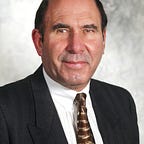Poets Code From The Inside Out
Joel B. Levine MD
There are not a lot of poets on social media. Poets are keepers of words, of their plasticity, of the surprising power of letters forming emotions. A simple line, “ A road not taken” can sum a life, evoke deepest reflections, and tell a story. The poet codes from the inside out.
We need more poems. At first saying that may sound a bit genteel. But a good poem is as graphic as street art, as immediate. Prose means what it tries to mean but a poem is a contrivance of a private message to you. It is as personal as a silent wish. Tweets scream and poems whisper.
I know a poet. She lingers on an image as others walk by it. She uses words that were silent when alone but resonant when next to others. Poets wonder and this removes part of them from the world. They make inquiry of anything and ask less what you are than what you mean. Meaning is not description. That is for a camera lens but poet’s images are what we cannot see without their eyes. We suffer from a literal world reducing everything to a need for action and less for a thought.
Poetry is hard to read. You cannot be taught but it can be learned. To read a poem is to enter it. The sound of words, the tensions between, the sum of their magic travels on our neurons to the most hidden of places. From Margaret Atwood,
“ I would like to be the air,
That inhabits you for the moment only,
I would like to be that unnoticed and that necessary”
I hate only seeing what my phone sees. It is an eye without tears, a camera without art. I want to see more of life so that I can slow it, turn it in my hands. 147 characters are but the dust of words.
Write to another as if you were writing a poem to them. Not in form or skill but in purpose. Make words of you, only of you and give them like gifts. Being a bit like a poet may be a start in a good direction.
